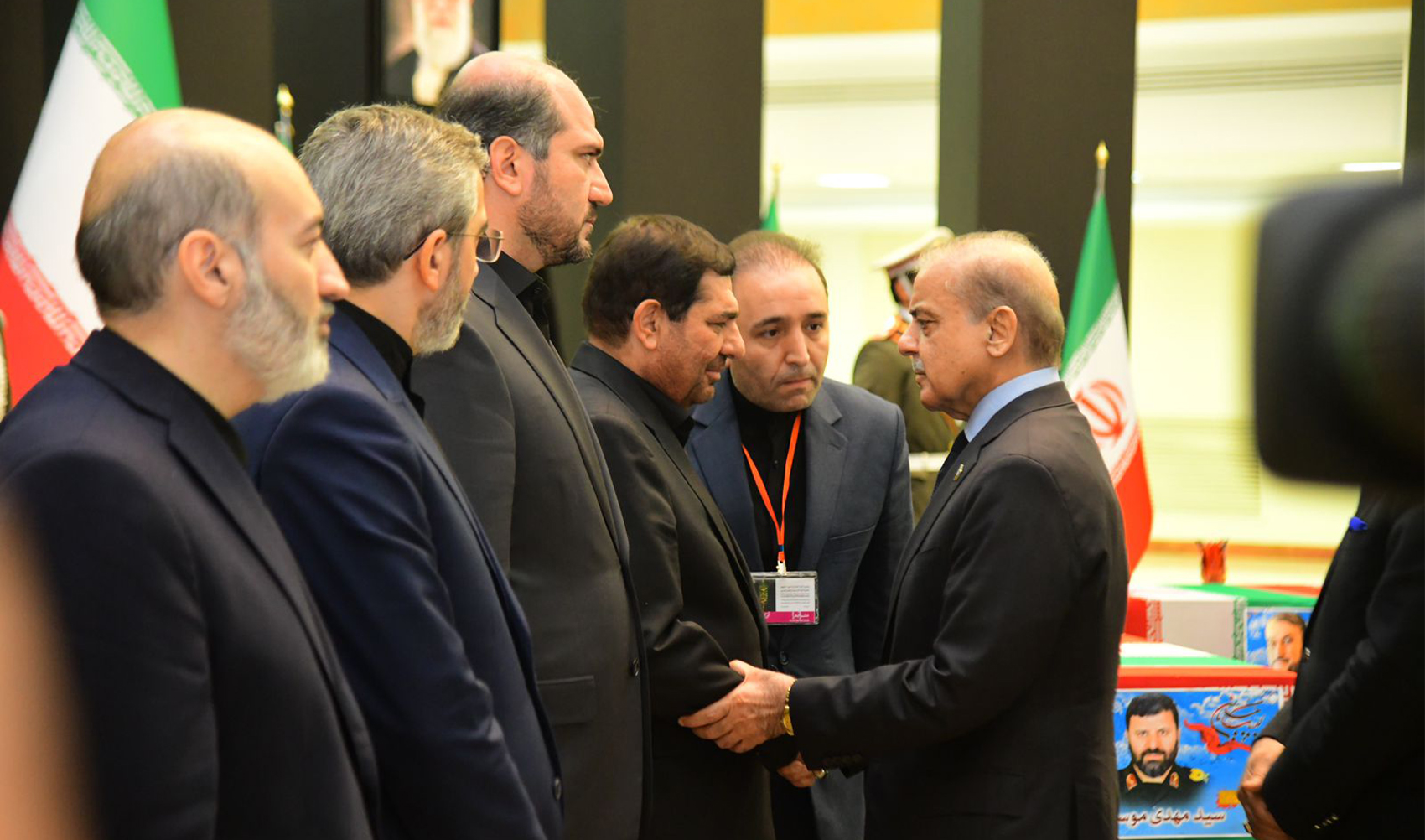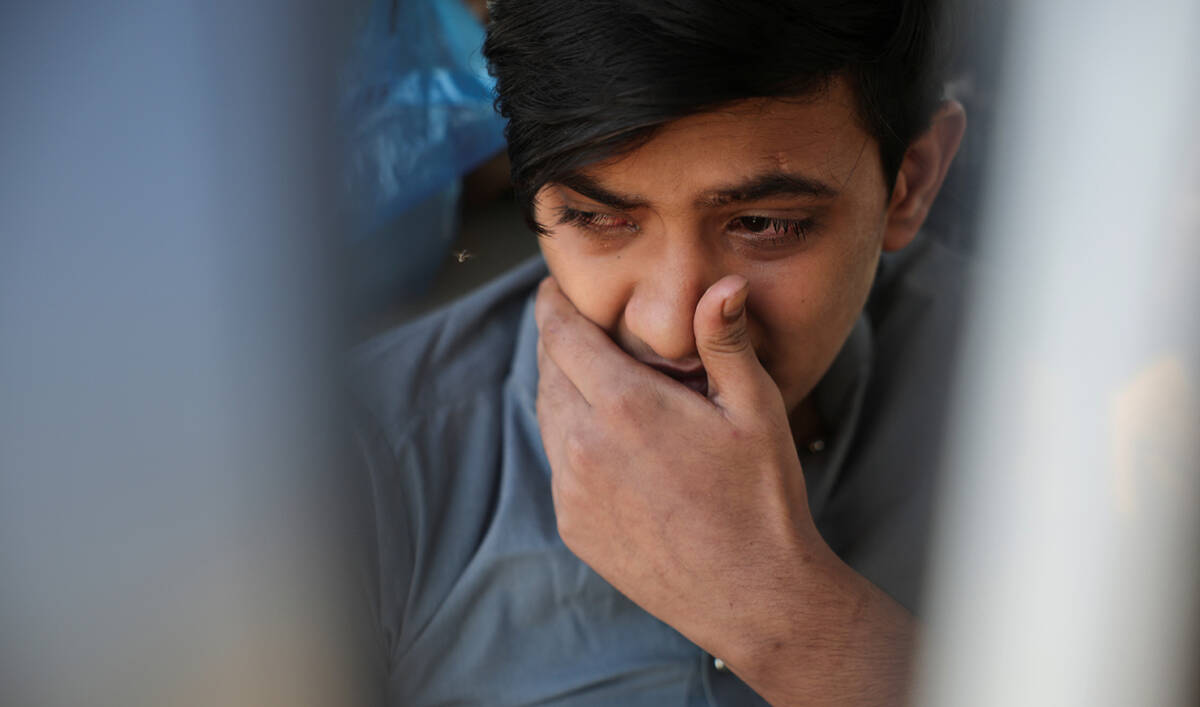ISLAMABAD: Prime Minister Shehbaz Sharif met Iran’s Supreme Leader Ayatollah Seyyed Ali Khamenei on Wednesday, as he arrived in Tehran on a day-long visit to offer his condolences for late President Ebrahim Raisi’s death in a helicopter crash, Pakistan’s foreign office said.
Sharif arrived in Tehran on Wednesday with senior ministers of his cabinet to attend Raisi’s funeral. Raisi’s helicopter crashed Sunday on a fog-shrouded mountainside in northern Iran on the way to the city of Tabriz. The Iranian president and his foreign minister were part of a group of officials who had attended the inauguration of a dam project on the border with Azerbaijan.
The Pakistani prime minister attended a memorial event in Raisi’s honor where he praised the late president for his services to Iran and for promoting the country’s ties with Pakistan.
“In his meeting with His Eminence, Ayatollah Seyyed Ali Khamenei, Supreme Leader of the Islamic Republic of Iran, Prime Minister Muhammad Shehbaz Sharif offered condolences on behalf of the people and Government of Pakistan,” Pakistan’s foreign office said.
The foreign office said Sharif recalled Raisi’s April visit to Pakistan, highlighting the former Iranian president’s “commendable role” in advancing Pakistan-Iran bilateral relations.
“The Prime Minister termed President Raisi as a visionary leader who manifested steadfast dedication to serving his country and his people,” the foreign office said.

Pakistan Prime Minister Shehbaz Sharif (right) meets the caretaker President of Iran, Mohammad Mokhber, at the commemoration ceremony of the late Dr. Ebrahim Raisi and Foreign Minister Hossein Amir Abdollahian in Tehran, Iran on May 22, 2024. (Government of Pakistan)
The Pakistani prime minister said Raisi’s contributions for the Muslim Ummah and besieged people of Gaza will be etched in history. Sharif appreciated Iran’s late Foreign Minister Abdollahian in promoting regional peace and dialogue.
“The Prime Minister expressed unwavering solidarity with the people of the Islamic Republic of Iran at this time of national tragedy,” the foreign office said.
“He reaffirmed Pakistan’s commitment to further strengthening the bonds of friendship and brotherhood with the people and Government of the Islamic Republic of Iran.”

Mourners attend the funeral procession of Iran’s President Ebrahim Raisi at a Muslim Shiite Shrine in Qom, on May 21, 2024. (AFP)




















